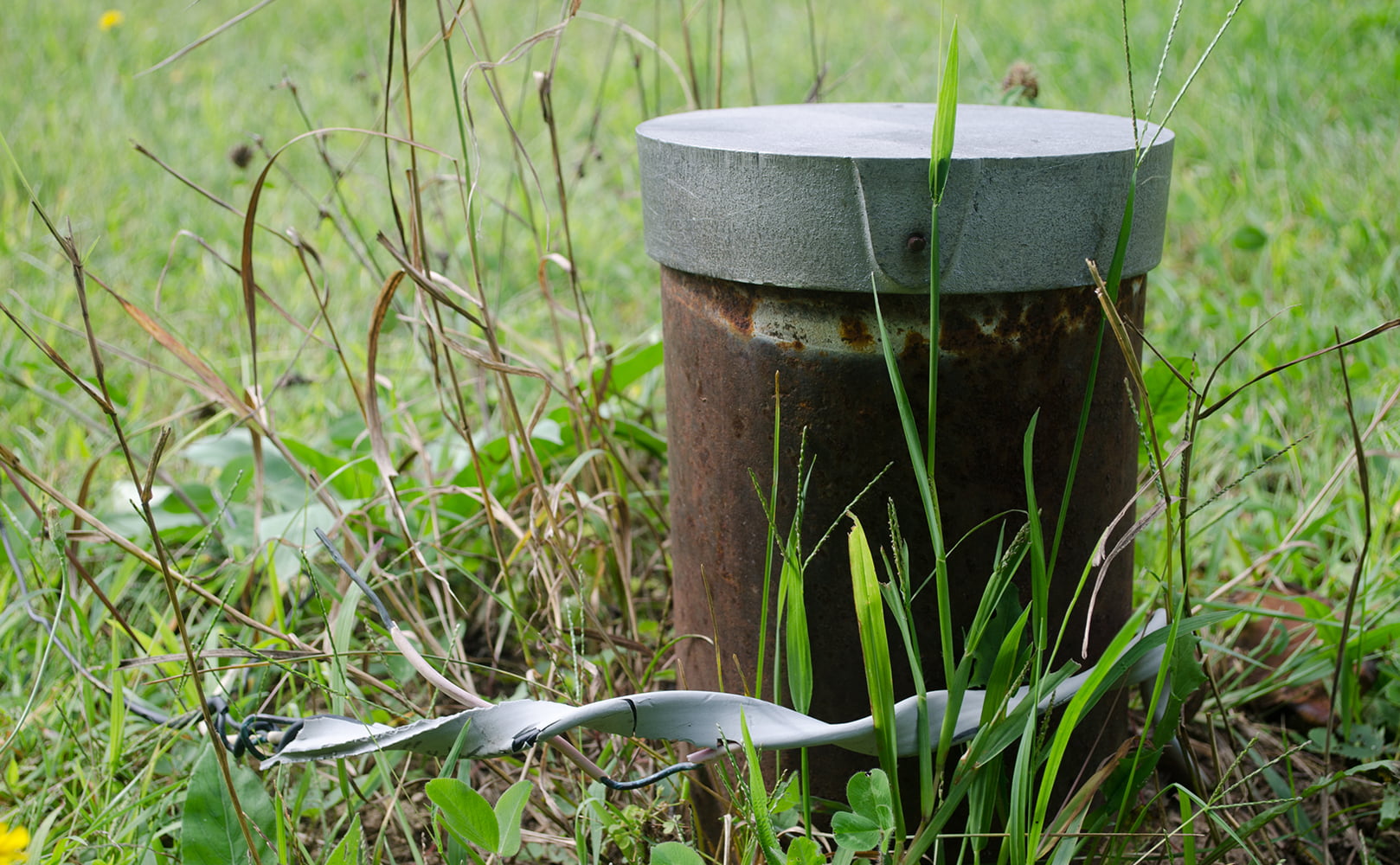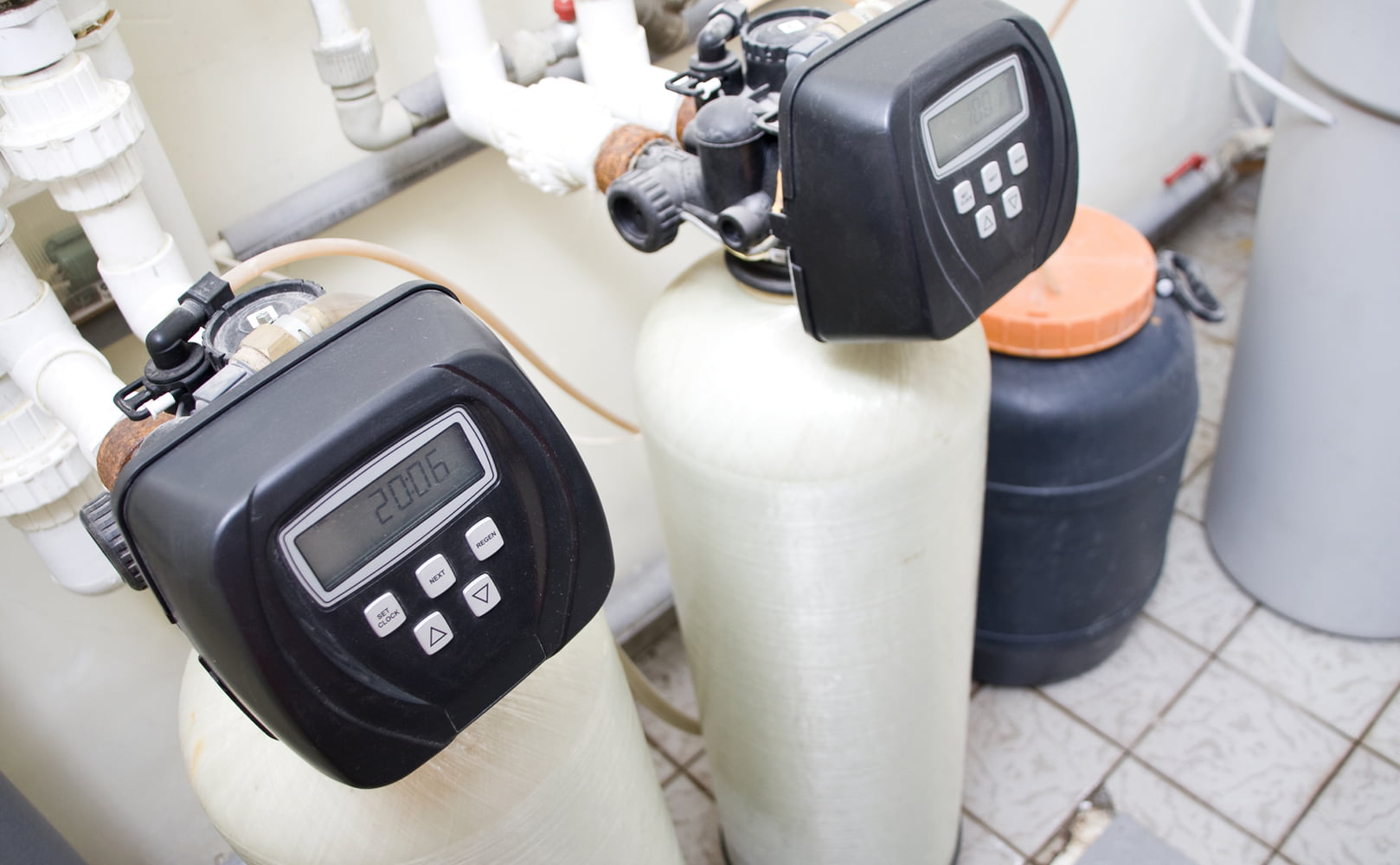How to Filter Deep Well Water | Guide from A to Z
Written by: Gene Fitzgerald // Last Updated: Aug 17, 2023
This page may contain affiliate links. If you buy a product or service through such a link we earn a commission at no extra cost to you. Learn more.
Extracting your water from a deep well has various benefits compared to a shallow one.
It’s important to pay attention to filtration in this case though, as otherwise you could compromise the quality of your drinking water.
This, in turn, can pose a health hazard and/or damage your plumbing and appliances, depending on the severity of the issue.
So, how to filter deep well water?
Key Takeaways
- The best way to filter deep well water is using a whole house filter.
- Tip: Have your well water tested to identify which filter type fits your needs.
- Aside from water filtration, you might also want to consider using shock chlorination, a cost-efficient method that eliminates pathogens in the well water, and water softening – deep well water may contain high levels of hardness minerals.
Does a Deeper Well Mean Better Water Quality?
A deeper well improves the quality of water in some regards, but it sacrifices other aspects. Using a deep well requires you to be extra careful about water filtration if you don’t want to endanger yourself and your household.
In general, shallow wells are more prone to contamination originating from surface-level impurities. These can easily make their way into your water supply and contaminate it, requiring advanced filtration.
On the other hand, even though water coming from a deep well usually has fewer contaminants, it comes with its own set of problems. For example, it could contain a higher concentration of minerals, increasing its hardness and requiring the use of a water softener.
Deep well water also tends to be more corrosive, which could result in a higher concentration of heavy metals making their way into your water supply, depending on the types of pipes used in your plumbing.
How to Filter Water from a Deep Well?
Filtering well water directly at the source is often unfeasible or cost-prohibitive for most households. It also comes with various long-term problems, such as maintenance and repair issues. The best way to filter deep well water is to use a whole house filter. These attach to your plumbing, close to the entry point of the house, and filter all water before it makes its way through the rest of the household.
You can also use an under sink water filter if you don’t want to invest in a whole house model. These are usually cheaper, but they come with one major downside: each filter can only process water at one access point. This means that you’ll need multiple filters to cover a larger home.
Do You Even Need a Water Filter with Deep Well Water?
In some cases, it’s possible that you don’t even need to filter your well water extensively. This all depends on where you live and what the overall water quality in your area is like.
Remember though, just because you don’t see, smell, or taste any impurities in the water as you drink it doesn’t mean it’s not contaminated. Some contaminants are invisible to the human eye and require specialized testing to uncover.
Well Water Testing
The best way to know if you need a filter for your deep well water is to get it tested. This is done by taking a sample and sending it to a laboratory, where the sample is checked against all (or most) popular types of contaminants found in private wells.
You can also purchase an at-home kit to test your water yourself. It’s inadvisable to base your entire purchasing decision on something like this though, because these tests rarely paint the full picture and omit many details. For example, they may not test for all possible types of contaminants.
How and How Often to Test
In order to test your well water, you should start by getting in touch with a laboratory that provides these types of tests. They will tell you how to collect a sample. Make sure to follow their instructions carefully! For example, you might sometimes have to keep your water running for a certain amount of time before you collect the sample.
Once you’ve collected your sample and sent it to the laboratory, they will get back to you with the results of your test. This will usually include a detailed breakdown of contaminants discovered as well as their amounts.
You don’t need to test your well water very often. Even once a year might be too much for most people. However, you should always get your well water tested after major construction work on your property. Even if it doesn’t directly affect the well on the surface, a construction project might still cause an underground disturbance which impacts the quality of your well water.
What Water Filter Works Best with Deep Well Water?
There aren’t any water filters specifically designed for use with deep well water. Rather, you should base your decision on the types of contaminants you’re dealing with. Different water filters on the market are designed to work on different contaminants. These include:
- Metals
- Gases
- Microorganisms
- Suspended particles
- Chemicals
Some filters can remove multiple types of contaminants. In other cases, you will have to use a multi-stage system. If you’re dealing with a heavily polluted deep well, you should consult a water treatment expert to figure out what type of filter will work best for your situation.
What to Consider
The filtration capability of a water filtration system is the most important consideration when purchasing one. You should also pay attention to flow rates. Some filtration systems are designed to handle a limited water throughput and might bottleneck your entire water supply if you need more than that. Typically, larger households will require a larger flow rate, but that’s not a universal rule.
Well Water Disinfection (Shock Chlorination)
Shock chlorination is a cost-efficient method for disinfecting a well which involves adding chlorine to the water and then circulating it through the plumbing. The chlorine must be left to work for a while so it can cover the entire water supply properly.
This is often needed if there are pathogens in your well water. Those might not be easily removed by standard filtration methods and often require additional work.
Water Softening
As we mentioned earlier, deeper wells may prevent certain types of contamination, but they can also deliver water that’s harder than average in your area. That’s because water in a deep well can get exposed to more minerals which end up in your water supply.
In this case, you should look for a water softening system. These are separate from filtration systems, but the two are sometimes offered in a combined package. If you need both filtration and softening for your water supply, it’s a good idea to look into a package deal of that type.
The Pros and Cons of Well Water
Pro: You Supply Your Own Water
You provide your own water by accessing the well, which means that you don’t have to worry about a high water bill at the end of the month. This can be a good solution for households that consume a lot of water.
Pro: More Minerals in Your Water Supply
Well water is richer in minerals, which can make it healthier in the long run. This is not always preferred though, as some people don’t like water that’s too hard. Hard water can also cause problems with certain appliances like electric kettles, washing machines, and water heaters.
Pro: Independent from Local Utilities
If there’s a water outage in your area, that won’t bother you. You’re completely detached from your local utilities and can enjoy independent access to your water supply.
Con: You Need to Do Your Own Filtration
You’ll have to set up a water filtration system if you want clean water for drinking, showering, and washing your clothes and dishes. This can add a good chunk of money to the initial expense of setting up the well itself, so be prepared to spend some time searching the market for a good deal.
Con: You’re Responsible for Maintenance
If something goes wrong with your well or its filtration system, you’re the one who has to fix that. Some issues might be covered by warranty plans, but you can’t rely on that for everything, especially for problems caused by your own negligence.
Con: It’s Not Always an Option
You might not even be able to install a well on your property, depending on where you live and your local regulations. Check to verify that this is even an option before investing any effort or money into a well project.
Is Well Water Safe to Drink?
Well water can be safe to drink by default, even without any special filtration. That’s because it already goes through some filtration as it passes through the soil. However, it may also contain certain microorganisms which are harmful and definitely need to be filtered out if you are planning on drinking you well water.
How Deep Should a Well Be for Drinking?
Your well should be at least 100 feet deep if you want to extract drinking water from it. Deeper is better, though there is a limit to how low you can go before the project becomes financially infeasible or you run into other problems. Typically, you can safely go down to 800 feet if your equipment allows for it, but you’ll need to make sure you’re working with a qualified contractor if you want to dig a well that deep.
If you have any questions about how to filter deep well water please don’t hesitate to leave a comment below!
Information provided on BOS is for educational purposes only. The products and services we review may not be right for your individual circumstances.
We adhere to strict editorial guidelines. Rest assured, the opinions expressed have not been provided, reviewed, or otherwise endorsed by our partners – they are unbiased, independent, and the author’s alone. Our licensed experts fact-check all content for accuracy. It is accurate as of the date posted and to the best of our knowledge.



